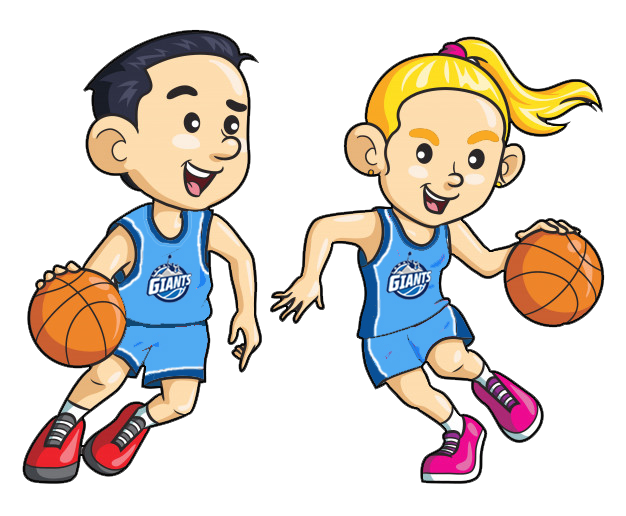

Coaches Code of Conduct
1. Remember that basketball is for enjoyment.
Remember that basketballers play for fun and enjoyment and that winning is only part of their motivation. Always make sure that participants are made to feel welcome whenever they attend for training or a match.
Ensure that activities are carefully planned, well structured and varied to provide opportunities for individual and team development. Be willing to depart from the plan to take advantage of an unexpectedly high interest in a particular activity.
Never ridicule players for making mistakes or losing a competition. See errors or losses as an opportunity to learn in a constructive way. Comment in a way that is positive and designed to create interest, involvement and development.
2. Be reasonable in your demands.
In scheduling training and playing times and days, be reasonable in your demands on players’ time, energy and enthusiasm, taking into account their age, level of play and other commitments such as school and employment.
Young children are likely to have more time but short attention spans. They may have plenty of energy but are likely to need more guidance on how best to look after their bodies. The differences in physical and mental maturity can be quite marked in younger children of the same age group. All these factors need to be considered in coaching young children.
Older children have greater demands from their studies and many of them need to work to assist their schooling. They also have many social demands. Try to assist them in achieving a good balance between the various demands on them.
Adults should in most cases be capable of making their own decisions on priority between basketball and other demands such as work, family and social engagements. Respect those decisions.
3. Teach understanding and respect for the rules.
Teach your players that understanding and playing by the rules is their own responsibility and that the rules exist for the safety, proper order and enjoyment of everyone involved in basketball. The lessons to be learned in this respect in basketball are lessons that can and should be carried over into all aspects of their lives. Do not encourage players to ignore or deliberately break any rules.
4. Give all players a reasonable amount of court time.
All players need and deserve reasonable court time. Avoid over-playing the talented players. It is unfair to both them and those who are not so talented. Players cannot improve without the opportunity of a reasonable amount of match practice. Talented players can burn out. Having no or little time in court can cause players to suffer from morale problems and they can lose interest in the sport altogether.
5. Develop team respect for the ability of opponents including their coaches.
Part of participation in sport is respect for all participants in the game. Encourage your players to accept that their opponents are entitled to proper courtesy. This means introducing themselves to their opponents on court, congratulating them whether they win or lose and accepting loss gracefully. Teach them that the opposition coach is trying to do the best for their team and is also entitled to respect.
6. Instill in your players respect for officials and acceptance of their judgment.
Players should be taught to understand that officials have a very difficult task to perform and that without them games could not be played. They are there to enforce the rules of play but they cannot always be right. Teach your players to accept bad calls graciously. Abuse of referees is unacceptable behaviour that should not be tolerated. Players who consistently dispute decisions or do not accept bad decisions should be singled out for counseling and guidance.
7. Guide your players’ interaction with media, parents and spectators.
It is sometimes very difficult for players to concentrate on the game when there is the distraction of the presence of friends and relatives as spectators. Coaches have a difficult role to play in teaching players respect for their parents and other spectators but also teaching them to maintain concentration on the team plan if spectators become over- enthusiastic.
Parents sometimes make demands on their children’s time that interferes in their basketball activities. Respect this and try to structure your coaching and their training and playing times and obligations to take those demands into account. There are many other factors that need to be balanced, including venue availability and requirements of administrators. The coach’s task is not easy.
The presence of media at a basketball game can lead to a temptation by some players to “show off” or otherwise act differently from how they would act normally. Encourage your players to not be awed by the presence of the media. Also teach them that if they are approached for an interview after a game they are representing the whole sport and should behave accordingly.
8. Group players according to age, height, skills and physical maturity, whenever possible.
Uneven competition can lead to a loss of enthusiasm. Coaches should always try and group players of reasonably equal ability. In coaching children it is important to remember the different maturity rates for children of the same age. A player in their early teenage years may be the tallest in their team and yet because they have matured early, be one of the shorter players in only a brief time. Coaches must be ever vigilant to ensure that changes in height and other physical characteristics are noticed and acted upon.
9. Ensure that equipment and facilities meet safety standards and are appropriate to the age and ability of the players.
In our increasingly litigious and accountable society, all those involved in sport have a responsibility to take all reasonable steps to ensure the safety and well being of participants. Coaches are in a unique position to control many of the factors that can have an effect on this welfare. Coaches should be aware of the dangers factors such as heat and dehydration, wet floors and other potentially hazardous environmental situations can cause. A coach has a responsibility to avoid putting players into dangerous conditions.
10. Be prepared to lose sometimes.
Everyone wins and loses at some time. Be a fair winner and a good loser. Disappointment at losing is natural, but it should not be obvious to the point of being unpleasant for others. Just as unpleasant can be the boastful winner. Recognise that even in defeat, the loser has achieved something, just by playing. Not everything in life can be a winning situation. Losing can be an important learning experience for your wider life goals. Guide your players to accept a loss in this spirit.
11. Act responsibly when players are ill or injured.
Show concern and take responsibility for players who are sick or injured whilst under your care. Follow the advice of a physician when determining when an injured or ill player is ready to recommence play. If a player is injured on court, make sure that there is no danger of further aggravation of the injury by prompt removal of the player if this is appropriate. Qualify yourself to administer first aid so that you can recognise the seriousness of an injury or illness and act accordingly.
12. As well as imparting knowledge and skills, promote desirable personal and social behaviour.
Be aware of the role of the coach as an educator. Particularly with young people, the way they perform in their lives is influenced by many factors. An important influence is the person they see as a role model. Coaches often take on the part of role model for many young people. It is therefore important to ensure that the influence from coaches is seen in a positive light rather adversely. What you say and how you act can be most important in modeling the behaviour of players.
13. Keep your knowledge current.
Seek to keep abreast of changes in sport. Ensure that the information used is up to date, appropriate to the needs of players and takes into account the principles of growth and development of children. Players cannot learn from you if your skills and knowledge are inadequate.
14. Ensure that any physical contact with a player is appropriate.
Physical contact between a coach and a player except that which would be considered usual social contact such as the shaking of a hand or a “high five” should be rare. Gestures that can be well meaning, or even considered by some to be acceptable, may be unacceptable to others. Sometimes physical contact can be misinterpreted as sexual harassment or even molestation. Particular care needs to be taken in coaching children. Ensure that if there is physical contact with a player that it is appropriate to the situation and necessary for the player’s skill development.
15. Avoid personal relationships with players.
Personal relationships with players can often be misinterpreted as something sinister. Friendship with players is essential to building trust between a coach and players. However, the power imbalance in a coaching situation can make it unwise for a relationship to develop beyond friendship. Particular care must be taken when coaching children.
16. Respect the rights, dignity and worth of every person.
Regardless of their gender, ability, cultural background, religion or other factor irrelevant to the game, all persons connected with basketball are entitled to equal treatment and respect. Avoid any remarks that could be construed as offensive or discriminatory. Sometimes even a joke may give offence. Even if someone refers to himself or herself with a particular label, it should not be taken as an invitation for you to do so. Using discretion is imperative and it is better to err on the side of caution.
17. Always respect the use of facilities and equipment provided.
Facilities and equipment cost money and will only function properly if kept in good order. Ensure that you and your players do not abuse anything provided for use. Discourage players from hanging off hoops or “slam dunking”. Quite properly, these practices are banned in most venues. Not only can equipment be damaged but serious injury can occur.
Upcoming Events
Mar
Sunday March 24 – Details TBC
Feb
Free Clinic for all in our community. More info www.laragiants.org.au/giantclinic24/
Jul
Sunday August 27 Lara Primary School 1pm U10s, 2pm U12s 3pm Programs – Shooting Starts, Little Giants, Mighty Giants & Pipsqueaks 3:30pm U14s, 4:30pm U16s, u18s & u19s
Jun
Join us for a fun night of Trivia…. But with a twist. There will be a strong emphasis on TV, Movies, Sport & Music as well as other crazy fun games & activities for all to enjoy
Jun
The Lara Giants are off to watch the NBL1 action with the Geelong United Supercats on Saturday June 3rd at the Geelong Arena. More info Lara Giants – Geelong Supercats Club Night
Mar
Our summer presentation day is Sunday April 2
Mar
Free Clinic / Come & Try Session Sunday March 19 Lara Lake Primary
Nov
7pm Sunday Nov 20 Lara Community Centre – Youth Room All positions will be declared vacant & a new committee will be elected. If you are passionate about helping our club as we head into the most important time in our 30 year history we would love for you to come along.
Sep
Uniform day is on Thursday 15th September at the St Anthony’s Church on Kees Road. All new players from u10s to seniors will require a Lara Giants reversible uniform. For those of you who tried on and ordered a uniform at try outs, please come along to collect your uniform between 5.30 and 8pm. You […]
Sep
Junior Presentation Day 12:30pm Little, Pipsqueaks & Mighty Giants 1pm U12 Girls 1:30pm U14s 2:30pm U10 3:30pm U16s & u18s 4pm Club Champs 4:30pm U12 Boys